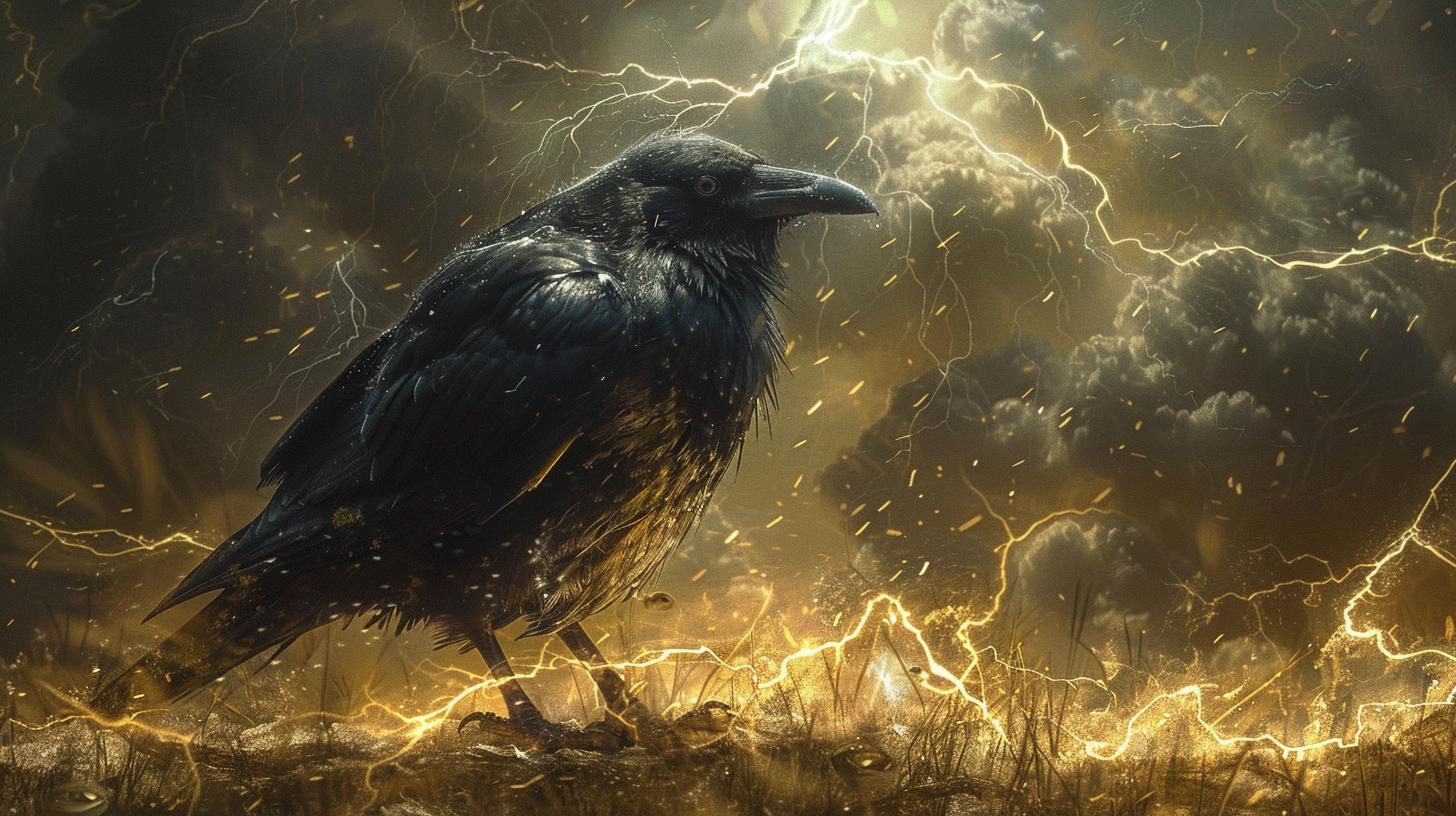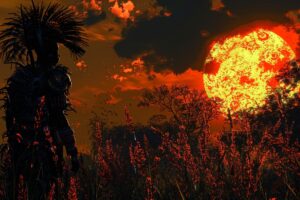Impundulu Lightning Bird: Mythology and Folklore Insights

The Impundulu, also known as the Lightning Bird, is a mythical creature in Zulu culture. It is associated with witchcraft and vampirism. The bird has the power to summon thunder and lightning, and is feared for its bloodlust and ability to take on various forms.
In folk beliefs, the Impundulu’s presence can be seen as either a good or bad omen.
Overview of Impundulu Lightning Bird Mythology
In Zulu culture, the Impundulu, or Lightning Bird, holds a prominent place in folklore and beliefs. This mythical creature is deeply intertwined with the spiritual traditions of the Zulu people, carrying a rich tapestry of stories and meanings.
Origins of Impundulu in Zulu Culture
The origins of the Impundulu in Zulu culture trace back to ancient times, where stories of its powers and abilities were passed down through generations. It is believed to be a symbol of both fear and respect, embodying the forces of nature in its electrifying presence.
Association with Witchcraft and Vampirism
The Impundulu is often associated with witchcraft and vampirism in Zulu culture, symbolizing the darker aspects of mystical practices. Its connection to witches and witchdoctors adds an aura of mystery and danger to its presence.
Variations in Appearance and Form
Throughout Zulu folklore, the Impundulu is described in various forms and appearances, reflecting its shapeshifting abilities and elusive nature. From a bird of prey to an iridescent creature, the Lightning Bird captivates with its ever-changing visage.
Role and Powers of the Impundulu
The Impundulu, or Lightning Bird, possesses various powers and plays different roles in Zulu folklore. From summoning thunder and lightning to its relationship with witches and witchdoctors, the creature embodies a complex array of abilities and characteristics.
Ability to Summon Thunder and Lightning
One of the most prominent powers attributed to the Impundulu is its ability to summon thunder and lightning. In Zulu culture, the bird is believed to control the elements through the flapping of its wings and the movement of its claws.
Relationship with Witches and Witchdoctors
The Impundulu often serves as a familiar to witches and witchdoctors, aiding them in their dark practices and acts of magic. This connection highlights the creature’s association with supernatural forces and its role in assisting practitioners of the occult.
Feeding Habits and Bloodlust
Known for its insatiable appetite for blood, the Impundulu exhibits vampiric tendencies in both human and animal form. It feeds on humans when in human shape, while preying on other birds in its avian form.
This feeding behavior contributes to its fearsome reputation in Zulu folklore.
Folklore and Beliefs Surrounding the Impundulu
Significance of Lightning Strikes and Eggs
In Zulu folklore, a lightning strike is seen as the Impundulu’s manifestation, indicating its presence and power. It is believed that the bird lays its eggs underground at the site of lightning strikes, with the discovery of these eggs considered to bring either good or bad omens, leading to elaborate rituals for interpretation.
Importance of Impundulu Fat in Traditional Medicine
- The fat of the Impundulu is highly esteemed in traditional medicine practices among certain African tribes. It is believed to possess potent healing properties and is often used in remedies to treat various ailments and conditions.
- Shamans and healers attribute mystical qualities to the fat of the Lightning Bird, harnessing its supposed magical properties to create potions and ointments for spiritual and physical healing.
Interpretation of Impundulu’s Presence as Good or Bad Omen
Depending on the context and circumstances, the appearance of the Impundulu can be interpreted as either a positive or negative sign in Zulu belief systems.
Its presence may foretell prosperity, protection, or danger, leading individuals to seek guidance from spiritual leaders for proper discernment.
.









